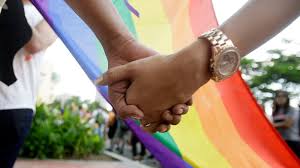The controversy that trailed the Samoa agreement signed by the federal government on June 28, 2024, was not only unnecessary and misplaced, but also needless and avoidable. Concerns over claims of LGBTQ clause in the agreement, named after the Pacific Island Samoa, where it was signed on November 15, 2023, had reverberated across Nigeria, with critics asking the federal government to rescind its decision and withdraw from the pact.
The agreement establishes a comprehensive legal framework between the European Union (EU) and more than half of the 79 members of the Organisation of African, Caribbean, and the Pacific States (OACPS). It covers six thematic areas, namely, democracy and human rights, sustainable economic growth, climate change, human and social development, peace and security, and migration and mobility.
J
Unfortunately, these lofty benefits of the Samoa agreement were emasculated by allegations among clerics, rights activists, and civil society organisations that it contains a clause on LGBTQ. Specifically, Articles 2.5 and 29.5 of the document were said to legalise LGBTQ, transgenderism, abortion, teen sexual abuse, and perversity in African countries.
A Lagos-based lawyer and chairman of the Human and Constitutional Rights Committee of the African Bar Association (AfBA), Sonnie Ekwowusi, criticised the signing, describing it as “nauseating” and questioned the judgement of Nigerian officials.
More worrisome is the fact that the Samoa brouhaha gained traction in spite of clarifications by the Minister of Budget and Economic Planning, Abubakar Atiku Bagudu, who confirmed Nigeria’s ratification of the agreement, that it pertained strictly to economic development and did not mention LGBTQ or same-sex marriage.
The Minister of Information and National Orientation, Mohammed Idris, had also denied insinuations on LGBTQ clause in the Samoa agreement. He said, “Let me for reasons of emphasis state that the government of President Bola Ahmed Tinubu will not in any way sign anything that goes against our constitution, our laws, our cultures, and our various faiths. Whatever has been done is in the interest of this country”.
Corroborating the ministers’ clarifications, President of the Nigeria Bar Association (NBA), Yakubu Maikyau, said, “… the Samoa agreement recognises, for instance, Nigeria’s Same Sex Marriage (Prohibition) Act, 2023, and, of course, the supremacy of the Constitution of the Federal Republic of Nigeria 1999 (as amended).”
It is pertinent to underscore the fact that the Samoa agreement hoopla has brought to the fore the oft suspicion and apprehension that had trailed government’s policies and programmes over the years. Successive governments’ policies and programmes had been shrouded in needless secrecy and hidden clauses, which gave room for insinuations and misinformation.
We are, therefore, of the view that if the government had made available the 403-page, containing 104 Articles of the Samoa document for public scrutiny, the outcry against it by a number of Nigerians would have been avoided. An enlightenment and sensitisation campaign in the mass media and other awareness platforms would have saved the government the embarrassment caused by the controversy.
Nevertheless, we are miffed by the ignoble role of a section of the media in championing and promoting the falsehood about the Samoa agreement. It beggars belief that some reputable newspapers could condescend to peddling rumours and lies against the journalistic ethics and principles of cross-checking facts and when in doubt leave out. This unjustified and unpatriotic act portrays the media, the fourth estate of the realm, in bad light and is condemnable.
